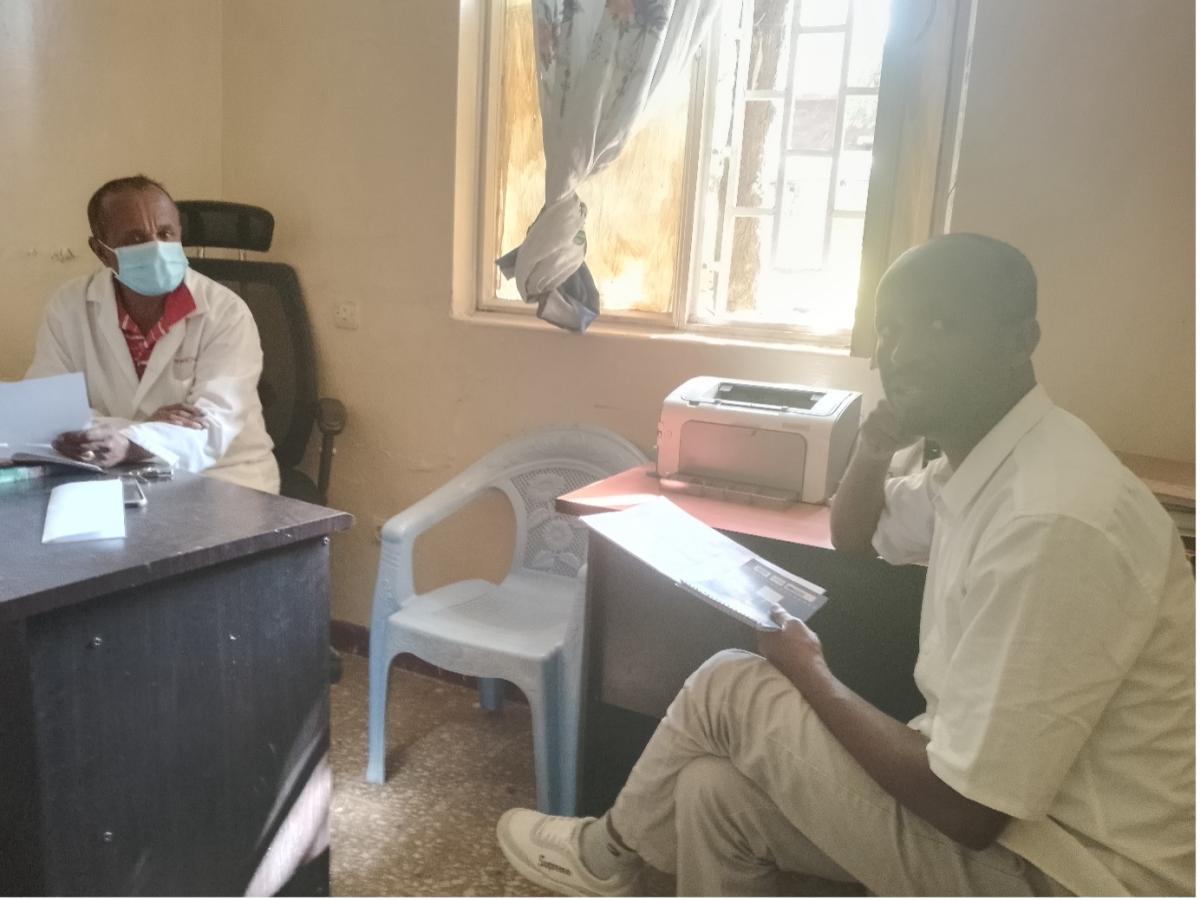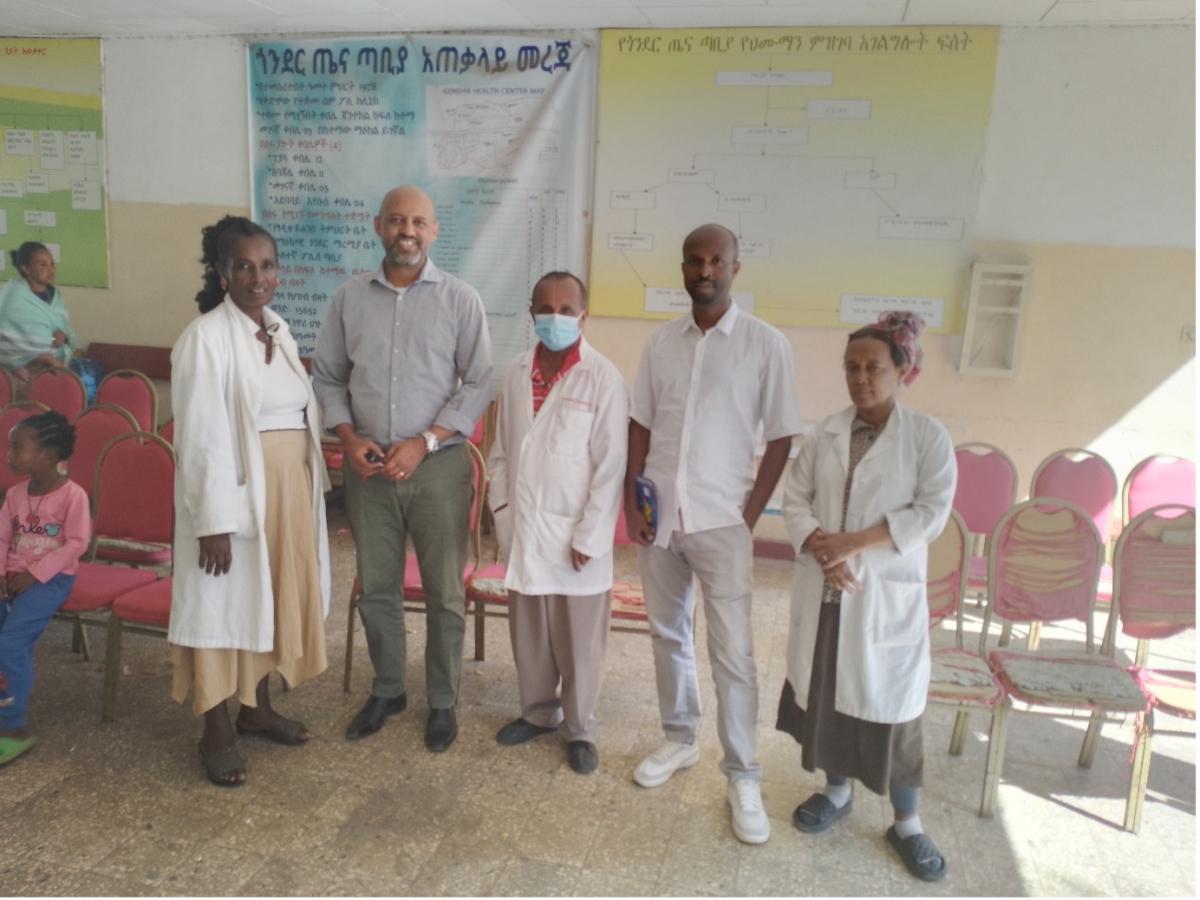World Health Organization
Supporting the National Tobacco Prevention and Control Programme: work of the National Tobacco Control Coordination Committee - WHO Compendium Report on Multisectoral Action
Multisectoral Action
27 May 2024
World Health Organization | 13 May 2024
Integrated primary care services for noncommunicable diseases (NCDs) such as diabetes, hypertension, or cervical cancer are among the most promising approaches for better and more cost-effective care. From low- and middle-income countries (LMIC), however, there is only limited practical experience and evidence on how to successfully implement such integrated models of care for NCDs. In Ethiopia, an implementation research study is currently working to practically implement and evaluate such an approach.
In Ethiopia, the burden of NCDs, such as hypertension, diabetes, and cervical cancer, is rapidly increasing and challenging the health system. The country is committed to tackling this health challenge: Ethiopia adopted the UN Political Declaration on NCD Prevention and Control and created the first Ethiopian National Cancer Control Plan. Additionally, the Federal Ministry of Health (FMoH) has embraced the World Health Organization’s (WHO) HEARTS Technical Package on improving cardiovascular health as part of its Health Sector Transformation Plan (2020-2025) and NCDs management protocol.
Together, these initiatives make for a combine lifestyle modifications, screening, early diagnosis, treatment, and palliative care into a comprehensive NCD prevention and control approach. However, obstacles persist in adapting HEARTS at the primary health care (PHC) level and better coordinate currently fragmented NCD services.
Integrating diabetes, hypertension and cervical cancer services in a three-in-one approach, for example, could offer significant benefits, improving health outcomes, decreasing healthcare costs, and enhancing access to team-based NCD care and support.

Photo: Mr Amare Demmsie, project co-investigator, discussing the research with a health professional at a primary health care centre.
Research on integrating NCD services at the PHC level in low- and middle-income countries like Ethiopia remains sparse. Evidence from health programmes responding to HIV/AIDS and tuberculosis, however, suggest that integrated approaches are effective. Recent studies in sub-Saharan Africa have also shown promising outcomes in managing multiple long-term conditions.
To address the persisting evidence gap, the University of Gondar in Ethiopia has launched an implementation research project with support from the Norwegian Agency for Development Cooperation (Norad), the WHO Department of NCD, Rehabilitation and Disability and the Alliance for Health Policy and Systems Research. The study aims to adapt the HEARTS approach to the Ethiopian context, applying implementation science principles. The Amhara Public Health Institute, Amhara Regional Health Bureau, FMoH, the WHO Country Office in Ethiopia, and Uppsala University in Sweden are additional project partners.
The research project will evolve in three phases. In a first, pre-implementation phase, the research team is conducting evidence mapping to identify literature gaps in integrated NCD prevention and control in Ethiopia. This includes a better understanding of PHC facilities’ readiness to provide care through a service availability and readiness assessment (SARA), as well as exploring barriers and facilitators using the consolidated framework for implementation research (CFIR).
In the following implementation phase, the team is developing a HEARTS-based implementation protocol that can be adapted to and validated in the local context. This will then serve as a basis to train PHC providers and pilot the adapted protocol in PHC settings.
Finally, the project will evaluate fidelity, acceptability, and feasibility of the tested HEARTS integration in PHC settings in Ethiopia, utilising the RE-AIM framework for evaluation.
The initiative is being piloted in selected PHC units in the Amhara National Regional State, where the research team has initially identified fragmentated NCD services at the PHC level. While diabetes and hypertension screening and treatment are centralised in one clinic, cervical cancer screening and management take place in a different location within the same PHC facility. Separate national guidelines for diabetes, hypertension, and cervical cancer additionally complicate integration efforts. As part of its preparatory activities, the team is actively exploring the best strategies to effectively integrate these services.
Security concerns, political instability, unreliable public transportation, and persistent electricity and internet disruptions within Amhara Regional State have forced the team to adapt the original research protocol and review field activities accordingly. Nonetheless, the team has already gathered data from several cities, including Gondar, Bahir Dar, Dessie, and Haik. This provides an informative first snapshot of Ethiopia's diverse healthcare landscape.
Aligned with the principles of implementation research, the project’s approach has been team-based, involving a diverse array of healthcare professionals across all project phases. Engaging nurses, midwives, physicians/health officers, pharmacists, counsellors, social workers, nutritionists, and physical activity experts has ensured a comprehensive understanding of specific needs. This includes strengthening capacity for multidisciplinary teams, enhancing coordination and communication, and supporting routine data collection and analysis. Multi-stakeholder collaboration continues to be a backbone of the project, guaranteeing its relevance, uptake, and long-term sustainability. The project's approach embedding implementation research into existing health programmes streamlines uptake, while also fostering a culture of learning and collaboration within the local health system.
Through implementation research, the project aims to pave the way for the integrated delivery of NCD services in Ethiopia and provide insights into its impact on service delivery and health outcomes.
Detailed research findings will be shared in late 2024.

Photo: The project team (Dr Netsanet Mengistu and Mr Amare Demssie) with the health care professionals involved in the research project at a primary health care centre.
For more information, please visit the Alliance webpage here.
This country story is part of a series on implementation research projects aiming to improve integrated NCD services at PHC level.